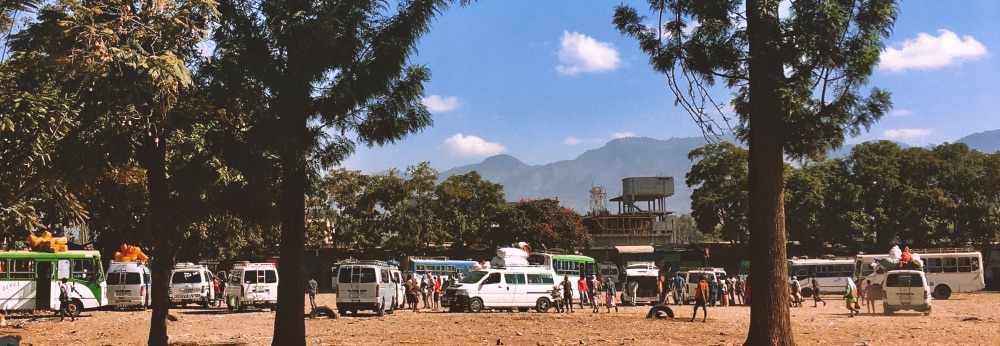Samia Aden
31. Januar 2025,18:00 CET (Anmeldung siehe unten)
Die Auswirkungen der globalen Klimakrise rücken Fragen nach Klimagerechtigkeit in den Fokus politisch-aktivistischen Engagements. Die eurozentristischen Diskurse zum Klimawandel und zur Klimaneutralität betonen technische Lösungen und halten an der bisherigen Ausrichtung auf Wirtschaftswachstum fest. So führen Projekte unter dem neuen „grünen“ Deckmantel der erneuerbaren Energien im Globalen Süden zu Rohstoffabbau, Landkonflikten und Menschenrechtsverletzungen. Die Zerstörung von Ökosystemen, die Ausbeutung globaler ökologischer und sozialer Ressourcen sowie damit verbundene globale Ungleichheiten aufgrund geopolitischer Machtverhältnisse werden weitgehend ausgeblendet. Zu beobachten ist das Fortschreiten post- und neokolonialer Abhängigkeiten. Stimmen indigener und rassifizierte Bevölkerungsgruppen im Globalen Süden bleiben in diesen Debatten und den damit verbundenen politischen Entscheidungen weitestgehend marginalisiert. Dabei sind sie es, die bereits heute und in Zukunft von den Auswirkungen des Klimawandels am meisten betroffen sind und auch sein werden. Der Vortrag diskutiert die Notwenigkeit dekolonialer und intersektionaler Perspektiven auf die Klimawandeldebatte und -krise. Hierfür betrachte ich zunächst den Diskurs um Klimawandel und Klimaneutralität als Form epistemischer Gewalt und Ausdruck kolonialer Kontinuität von Repräsentations- und Deutungsmacht. Am Beispiel eines ethnographischen Forschungsprojektes in Somalia werden dann die Perspektiven und Erfahrungen von Dürre betroffenen ehemaligen Nomad:innen in Geflüchtetencamps in Somalia nachgezeichnet. Der Vortrag zeigt, für wen die Klimakrise am folgenreichsten ist und wie Gender, Klimakrise und Fluchtmigration miteinander verschränkt sind. Ich argumentiere, dass die imperialistische Lebensweise des globalen Nordens das koloniale Objekt der „Dritten Welt Frau“ in Form von Binnengeflüchteten im Globalen Süden (re-)produziert.
Samia Aden, MA., Soziale Arbeit, war 2016–2023 wissenschaftliche Mitarbeiterin an der Universität Kassel im Fachbereich Sozialisation mit dem Schwerpunkt Migration und Interkulturelle Bildung. Sie lehrt u.a. zu den Themen Migrationspädagogik und Soziale Arbeit in der (Flucht-)Migrationsgesellschaft. In ihrem Dissertationsprojekt beschäftigt sie sich mit Jugend und Transnationalität unter den Bedingungen von Flucht und Asyl. Hierfür hat sie sowohl in Somalia als auch in Deutschland ethnographisch geforscht. Weitere Forschungsinteressen sind die Auswirkungen von Migrationsregimen auf transnationale Familienbeziehungen und klimawandelbedingte Fluchtmigrationsbewegungen. Zudem interessiert sie sich für macht- und herrschaftskritische methodologische Reflexionen in der flucht- und migrationsbezogenen Forschung.
Anmeldung über diese Email
